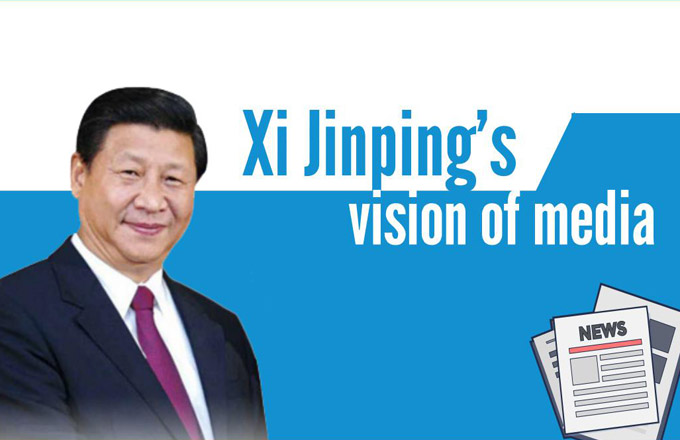White paper: Judicial Transparency of Chinese Courts
V. Disclosure of Enforcement Information
The disclosure of enforcement information is an important content in the judicial transparency of people's courts, and an important means to promote the enforcement work of the courts, solve issues causing difficulties in enforcement and facilitate the construction of social credit system. People's courts at all levels shall keep promoting the construction of the enforcement information disclosure platform, strengthening the comprehensive utilization of enforcement information and effectively facilitating the solving of issues causing difficulties in enforcement.
Establishment of China Enforcement Information Disclosure Website
On November 1, 2014, China Enforcement Information Disclosure Website has been officially launched and become the national uniform enforcement information disclosure platform. Through the platform, the public may inquire the information of list of dishonest persons subject to enforcement, information on the persons subject to enforcement, enforcement case process information and judgment enforcement information. The parties to cases may inquire through the China Enforcement Information Online about the basic information of unclosed enforcement cases, information of list of dishonest persons subject to enforcement and judgment enforcement information, and may log on the Website to inquire about the procedure information of the case by their names, ID card numbers and enforcement case numbers, including the information on case registration for enforcement, enforcement personnel, change in enforcement procedure, enforcement measures, disposal of properties subject to enforcement, enforcement award, allocation of amounts from enforcement, probation of enforcement, suspension of enforcement and close of enforcement, and may follow up the progress of the enforcement case. The general public may conveniently inquire through the Enforcement Information Online about the standards for registration of enforcement cases, launch procedures, enforcement charging standards and basis, and moratorium, reduction or exemption of enforcement fee, enforcement risk warning, reward announcement and auction announcement, etc.
On September 14, 2016, the SPC's "China Enforcement" WeChat Official Account ID was duly launched, and has since then provided such functions as enforcement information inquiry, enforcement rule publication, interpretation of laws and regulations and disclosure of enforcement documents, so as to provide convenience to the general public to get access to the enforcement work information and enjoy judicial services at anytime anywhere. By the end of 2016, the enforcement information disclosure platform has cumulatively published the information on 6.44 million dishonest persons subject to enforcement, and 40.65 million pieces of information on persons subject to enforcement, and completed 29.16 million inquiries about information of enforcement cases.
All local courts have launched enforcement information disclosure websites or set up disclosure column successively, and made innovations on the disclosure method, promoted the disclosure of enforcement information and realized the connection and docking with China Enforcement Information Disclosure Website to enable real-time update. At present, courts in Beijing have realized the automatic collection and dynamic publishing of enforcement information, and the real-time release of number of cases under enforcement by courts at all levels in Beijing, and are able to provide real-time public data for the social credit system. All enforcement command centers in Jiangsu province will make public the list of persons subject to enforcement and the hotline for reporting clues about the properties of such persons, and have built up an enforcement information interactive platform online to realize timely feedback on the reported property clues concerning the persons subject to enforcement. Courts in Jiangxi have taken the comprehensive adjudication service platform as the basic platform supported by such platforms as electronic announcement screen, touch screen, Weibo, WeChat Official Account ID and 12368 telephone service, to timely disclose to the parties to a case and their entrusted agents the information on the process nodes, progress status, taken enforcement measures and relevant materials of the enforcement case, and disclose to the general public enforcement service information, enforcement announcement information, enforcement work dynamic information, enforcement laws and regulations and other public information. Courts in Guangdong have established the "online enforcement bureau" and realized online real-time broadcasting of information on the progress of enforcement case basically covering the whole province, and the online circulation and operation of the work content, and notified the parties concerned by text message about the enforcement log automatically generated by the system. Courts in Shanghai have established the whole process publication mechanism for information on enforcement case, refined the enforcement procedure into 31 nodes, pushed the same to relevant parties to a case proactively through 12368 litigation service platform, and realized the full disclosure of the enforcement process information. Courts in Liaoning have explored the joint exposure system of the dishonored persons subject to enforcement, and opened an exposure column of dishonored persons subject to enforcement on Liaoning Daily and other cooperation media, and published the information of list of dishonored persons subject to enforcement and typical dishonor cases. Courts in Ningxia have established the online enforcement command center, through which they have realized the full disclosure of enforcement announcement, enforcement laws and regulations, handling guidance, case handling procedure, list of dishonored persons subject to enforcement, unclosed enforcement cases, videos and audios of the enforcement scenes and other enforcement information. Shenzhen Intermediate People's Court has taken the online litigation service platform for courts in Shenzhen (http://ssfw.szcourt.gov.cn) as the subject and taken advantage of the hawk-eye investigation and control network and the intensive aurora system, to build up a uniform enforcement information disclosure platform to include information of the persons subject to enforcement into the Shenzhen Credit Website (http://www.szcredit.com.cn) to enhance the enforcement efficiency. The Intermediate People's Court in Xi'an, Shaanxi has explored the introduction of simultaneous video broadcasting online to the significant enforcement activities to expand the scope of enforcement disclosure, and enhance the transparency of enforcement work.
Establishment of Mechanism for Enforcement Information Sharing and Joint Punishment against Dishonored Persons Subject to Enforcement
The SPC has promoted and established the mechanism for enforcement information sharing, strengthened the construction of the online enforcement investigation and control mechanism with public security organs, land and resources bureaus, housing and urban-rural development departments, finance departments, industrial and commercial administration and other assistant enforcement entities, redoubled the efforts in docking with the credit platform of railways, civil aviation, industrial and commercial administration, banking financial institutions and relevant departments, and researched and developed the settlement account inquiry software with the People's Bank of China, and concluded agreement with and jointly issued documents with the China Banking Regulatory Commission, and realized the full coverage by means of the investigation and control via the networks of financial institutions; entered into collaboration agreement with Alipay and Tenpay and opened special lines to extend the cooperation field investigated and controlled from traditional banks to e-banking; circulated the information of list of dishonored persons subject to enforcement to relevant departments to jointly carry out credit punishment, restrict the dishonored persons subject to enforcement to purchase soft berth ticket of trains, tickets for first-class seats or above of CRH and CHSR, air tickets or apply for loans or credit cards, and forbid them to take office as legal representative or senior executive of the enterprise, so as to facilitate the dishonored persons subject to enforcement to actively perform the enforcement obligation.
Currently, the SPC has carried out credit punishment against the dishonored persons subject to enforcement jointly with more than 40 national authorities and institutions with social administration function, and the scope of punishment has extended from realistic social activities to virtual network space, so as to fully restrict the consumption of the dishonored persons subject to enforcement that is not necessary for living or operation, and the restriction subject has been extended from natural person to the entity of the person subject to enforcement and the legal representative, principal, directly responsible person who affects the discharge of debts or actual controller of such entity. By the end of 2016, there are 6.44 million dishonest persons subject to enforcement made public, and 5.76 million persons have been prevented from purchase of air tickets and 2.07 million persons from purchase of soft berth ticket of trains or tickets for first-class seats or above of CRH and CHSR. This has given full play of the role of enforcement disclosure information in the construction of the social credit system.
Implementation of Online Judicial Auction
The implementation of online judicial auction is an important means to enhance the openness and transparency of the enforcement work and carry out the disclosure of enforcement information. On August 3, 2016, the SPC issued the Provisions on Several Issues Concerning Online Judicial Auction by People's Courts to make specific legal provisions on such issues as subject, mechanism, procedure, legal effect and assumption of liability of and for online auction and provide legal basis for the online auction system. All local people's courts have combined the local actuality and utilized internet thinking and mode to widely promote online auction system. So far, more than 1,600 courts from 28 province-level regions have joined the judicial auction platform on www.taobao.com, and have conducted more than 320,000 online auctions, put 150,000 pieces of items up for auction, and realized sales of more than RMB190 billion in total, with 89% of items successfully sold by auction at a premium rate of 42% on average, and saving commissions amounting to RMB4.2 billion for the parties concerned. Courts in Zhejiang launched online judicial auction platform with Taobao.com in June, 2012, and the courts have legally and independently disposed the properties involved in litigation by e-bidding, and all links of auction will be carried out on internet, and no commission or other charge will be collected for that. This has realized the whole process disclosure of the judicial auction, maximized the realization value of the assets under auction and squeezed the room for black box operation. Starting from the end of 2013, courts in Jiangsu cooperated with Taobao.com and realized the joining of courts at three levels into the judicial auction platform on Taobao.com and that all auction links are completed openly online. From 2014 to 2015, courts in Jiangsu has sold 11,241 articles at online auction, with a transaction amount totaling about RMB30 billion. Courts in Shanghai have established the judicial entrustment management platform to have it carried out uniform and centralized management of the judicial entrustment business such as audit, price appraisal, evaluation and auction.
- Judicial transparency report shows verdict openness needs improvement
- Stop abuse of legal aid and judicial review
- China to formulate judicial exclusionary rule of illegal evidence
- Ten judicial issues that sparked online debate last year
- China tightens judicial rules on children trafficking
- Top judicial search terms of 2016 revealed



















